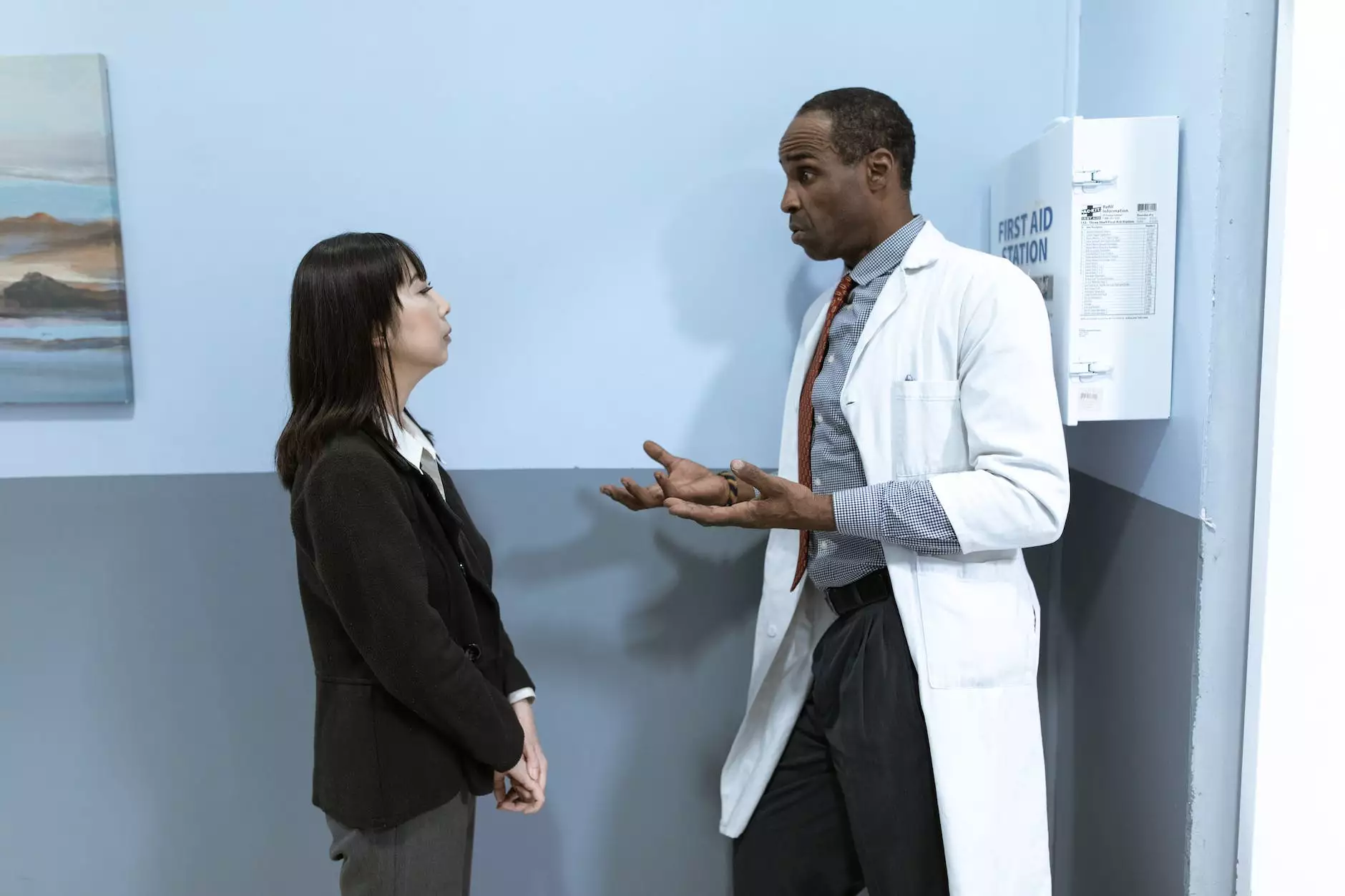Speech and Language Therapy After a Brain Injury

Welcome to Foley James D MD, where we take pride in providing comprehensive healthcare services. In this page, we will delve into the topic of speech and language therapy post-brain injury. We understand the challenges individuals face when communication abilities are affected, and our team of experts is here to support you on your path to recovery.
Understanding the Importance of Tailored Therapy
Brain injuries can vary in severity and impact, often leading to changes in speech and language capabilities. Speech and language therapy after a brain injury plays a crucial role in helping individuals regain and improve their communication skills.
Speech therapy focuses on addressing difficulties with articulation, voice production, and fluency. It aims to enhance overall speaking abilities, such as clarity, pronunciation, and volume. Additionally, it can help individuals manage swallowing and feeding issues that might arise as a result of a brain injury.
Language therapy targets comprehension, expression, and cognitive aspects of communication. It works to improve vocabulary, grammar, sentence structure, and understanding of written and spoken language. Language therapy is essential for individuals who experience difficulties with expressing thoughts and understanding others after a brain injury.
Our Approach to Speech and Language Therapy
At Foley James D MD, we believe in a personalized approach to speech and language therapy. Every individual's journey to recovery is unique, and our highly skilled therapists tailor treatment plans to meet specific needs and goals.
Our comprehensive assessment process allows us to evaluate the areas of communication affected by the brain injury. We consider factors such as the type of injury, the extent of damage, and the individual's overall health. Based on this evaluation, we design a treatment plan that combines evidence-based techniques with individualized goals.
Key Components of Our Therapy Program
1. Evaluation and Goal Setting
Our experienced therapists conduct thorough evaluations to identify communication challenges and set clear goals for therapy. By understanding each individual's unique needs, we can create a customized treatment plan that maximizes progress.
2. Individual and Group Therapy Sessions
Through one-on-one and group therapy sessions, our patients benefit from a supportive and motivating environment. Individual sessions allow for targeted intervention, while group sessions provide opportunities for practicing communication skills in real-life scenarios.
3. Cognitive Rehabilitation
Brain injuries can impact cognitive functions that are vital for effective communication. Our therapy program includes cognitive rehabilitation exercises to enhance attention, memory, problem-solving, and other cognitive skills necessary for communication success.
4. Augmentative and Alternative Communication (AAC)
In cases where speech abilities are severely affected, we incorporate augmentative and alternative communication techniques to facilitate effective communication. This may involve the use of communication devices, sign language, or other assistive technologies tailored to individual needs.
5. Collaborative Approach
We strongly believe in the power of collaboration. Our therapists work closely with other healthcare professionals, including neurologists, occupational therapists, and psychologists, to provide comprehensive care and ensure a multidisciplinary approach to rehabilitation.
Supporting Your Recovery Journey
At Foley James D MD, we are committed to supporting your recovery journey after a brain injury. We understand that every step towards improvement is significant and can make a lasting impact on overall quality of life.
We prioritize ongoing assessments to track progress and make necessary adjustments to your therapy plan. Our team closely monitors your development and provides guidance and encouragement throughout the rehabilitation process.
Empowering You with Resources
In addition to our therapy sessions, we provide valuable resources to aid in your recovery. These resources include educational materials, exercises, and strategies to promote communication growth outside of therapy sessions.
We also offer guidance and support to the family members and loved ones of our patients. We believe that involving the support network in the recovery process is essential for long-term success.
Conclusion
Speech and language therapy after a brain injury holds the key to regaining, improving, and maintaining effective communication skills. With a tailored and comprehensive approach, Foley James D MD is dedicated to helping you on your recovery journey. Our team of experts is here to provide the support you need to navigate the challenges and maximize your potential.









